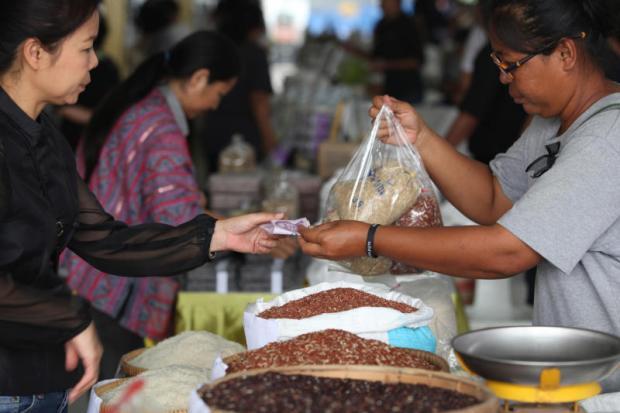Thailand: Inflation in March led by alcohol, tobacco
Inflation in March was driven primarily by fuel, tobacco, alcoholic beverages and milled rice.
The Commerce Ministry reported Monday headline inflation based on the consumer price index (CPI) rose 0.79% in March from the same month a year earlier. This followed an increase of 0.42% in February, which eased from a 0.68% reading in January.
Significant rises happened in fuel and water supplies, tobacco and alcoholic beverages, and energy, which rose 4.84%, 5.95%, and 3.79% year-on-year, respectively.
Pimchanok Vonkorpon, director-general of the Trade Policy and Strategy Office, said of the 422 products and service items used to gauge the inflation rate, 238 climbed in price last month. No price changes were registered for 70 items, while 114 saw prices drop.
However, on a monthly basis, the ministry reported prices contracted 0.09% from February, mainly because of cheaper fresh food such as fresh poultry, pork, eggs, fruit and vegetables.
For the first three months, headline inflation was 0.64% from the same period last year.
Core CPI, which excludes raw food and energy prices, rose 0.63% year-on-year in March and 0.04% month-to-month from February. For the past three months, core inflation averaged 0.61%.
The ministry forecast inflation in the second quarter will average 1.06% driven by higher goods prices.
The Commerce Ministry maintains its inflation forecast of 0.7-1.7% for the year, though the economy is improving and a minimum wage hike this month will raise consumer prices.
The cabinet in late January endorsed a daily minimum wage hike of of 5-22 baht from last Sunday. The highest increases will occur in Chon Buri, Phuket and Rayong.
The most affected industries include food/drinks, tanning, office supplies and basic metal products. In the service sector, construction, wholesale/retail, car/motorcycle repairs, hotels and food services are expected to feel the pinch.
Ms Pimchanok said the hike is unlikely to affect manufacturers’ production costs much. Nonetheless, the Internal Trade Department will closely monitor prices.
Commerce Minister Sontirat Sontijirawong said the department was assigned to closely supervise the impact of the wage hike, notably on the labour-intensive manufacturing sector, and particularly students’ uniforms.
Over the longer term, he said the government will speed up the planned expansion of low-cost stores for the benefit of the public.
There are 20,000 Thong Fah Pracha Rat discount stores but plans are afoot to double this number by year’s end.
Thanavath Phonvichai, vice-president for research at the University of the Thai Chamber of Commerce, said inflation in March showed the Thai economy has recovered more slowly than expected.
“The local economy isn’t good enough because of narrow economic growth, with some areas such as the farm sector still struggling from low farm product prices,” he said.
“The government should work faster to spend the allocated 150 billion baht mid-year budget to increase employment in the provinces while overseeing farm prices because people across Thailand still rely on farm income.”
Source: https://www.bangkokpost.com/business/news/1439707/inflation-in-march-led-by-alcohol-tobacco


 Thailand
Thailand




